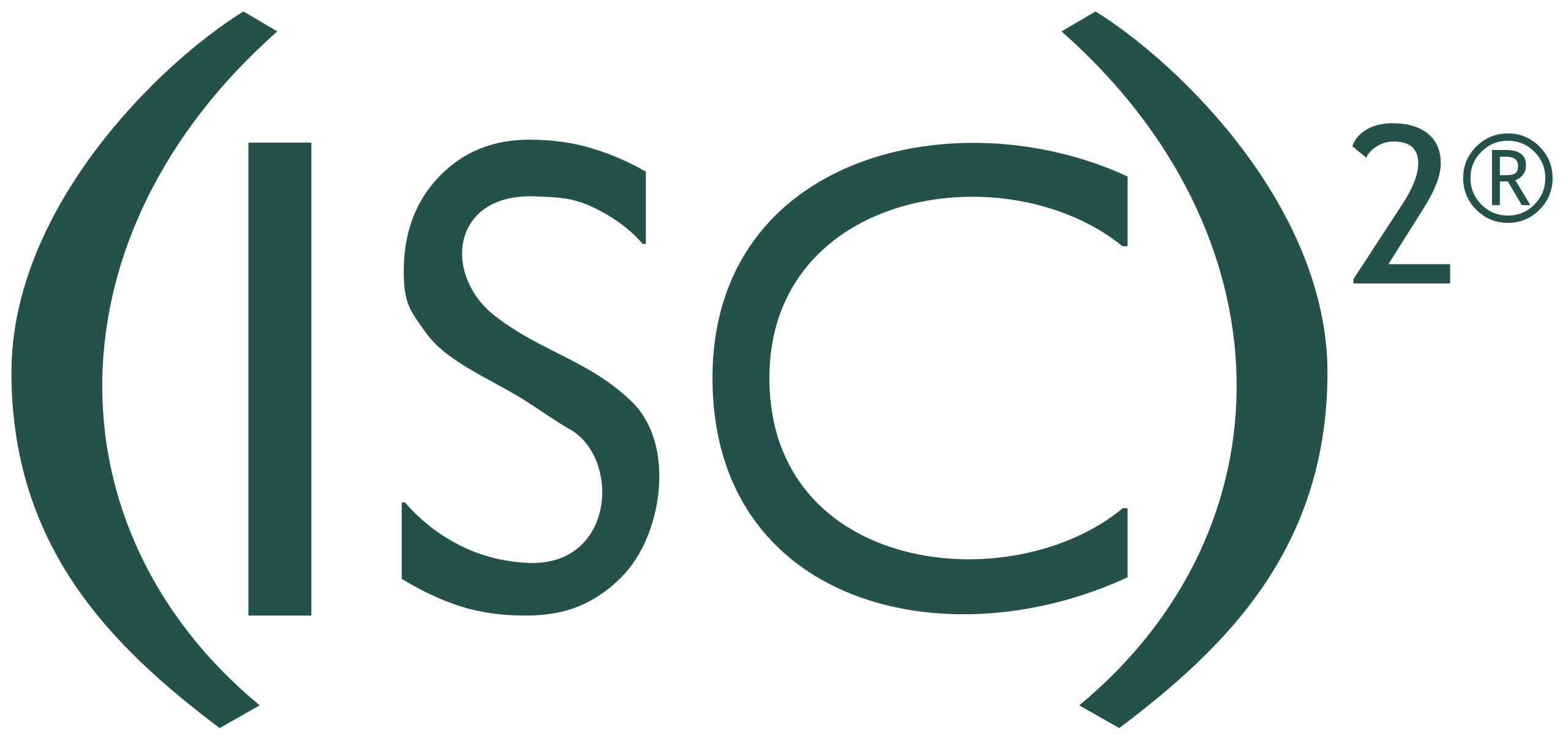CISSP - Certified Information System Security Professional
CISSP - Certified Information System Security Professional Course Details:
 Gain core knowledge and experience to successfully implement and manage security programs and prepare for the CISSP certification.
Gain core knowledge and experience to successfully implement and manage security programs and prepare for the CISSP certification.
The Certified Information Systems Security Professional (CISSP) is an advanced-level certification for IT pros serious about careers in information security. Offered by the International Information Systems Security Certification Consortium, known as (ISC)2 (pronounced, "ISC squared"), this vendor-neutral credential is recognized worldwide for its standards of excellence.
CISSP credential holders are decision-makers who possess expert knowledge and technical skills necessary to develop, guide and manage security standards, policies and procedures within their organizations. The CISSP continues to be highly sought after by IT professionals and organizations. It is a regular fixture on most-wanted and must-have security certification surveys.
This course is the most comprehensive review of information security concepts and industry best practices, and focuses on the eight domains of the CISSP CBK (Common Body of Knowledge) that are covered in the CISSP exam. You will gain knowledge in information security that will increase your ability to successfully implement and manage security programs in any organization or government entity.
Download our CISSP Certified Information Systems Security Professional Brochure: GITT_CISSP_Certified-Information-Systems-Security-Professional.pdf
This Course Supports a DoD Approved 8570 Baseline Certification and meets: DoD Directive 8140 / 8570.01-M IT Training Requirements.
Call (919) 283-1674 to get a class scheduled online or in your area!
1. Security and Risk Management (e.g., Security, Risk, Compliance, Law, Regulations, Business Continuity)
- Understand and Apply Concepts of Confidentiality, Integrity, and Availability
- Apply Security Governance Principles
- Compliance
- Understand Legal and Regulatory Issues that Pertain to Information Security in a Global Context
- Develop and Implement Documented Security Policy, Standards, Procedures, and Guidelines
- Understand Business Continuity Requirements
- Contribute to Personnel Security Policies
- Understand and Apply Risk Management Concepts
- Understand and Apply Threat Modeling
- Integrate Security Risk Considerations into Acquisitions Strategy and Practice
- Establish and Manage Security Education, Training, and Awareness
2. Asset Security (Protecting Security of Assets)
- Classify Information and Supporting Assets
- Determine and Maintain Ownership
- Protect Privacy
- Ensure Appropriate Retention
- Determine Data Security Controls
- Establish Handling Requirements
3. Security Engineering (Engineering and Management of Security)
- Implement and Manage an Engineering Life Cycle Using Security Design Principles
- Understand Fundamental Concepts of Security Models
- Select Controls and Countermeasures Based Upon Information Systems Security Standards
- Understand the Security Capabilities of Information Systems
- Assess and Mitigate the Vulnerabilities of Security Architectures, Designs, and Solution Elements
- Assess and Mitigate Vulnerabilities in Web-based Systems
- Assess and Mitigate Vulnerabilities in Mobile Systems
- Assess and Mitigate Vulnerabilities in Embedded Devices and Cyber-Physical Systems
- Apply Cryptography
- Apply Secure Principles to Site and Facility Design
- Design and Implement Facility Security
4. Communications and Network Security (Designing and Protecting Network Security)
- Apply Secure Design Principles to Network Architecture
- Securing Network Components
- Design and Establish Secure Communication Channels
- Prevent or Mitigate Network Attacks
5. Identity and Access Management (Controlling Access and Managing Identity)
- Control Physical and Logical Access to Assets
- Manage Identification and Authentication of People and Devices
- Integrate Identity as a Service (IDaaS)
- Integrate Third-Party Identity Services
- Implement and Manage Authorization Mechanisms
- Prevent or Mitigate Access Control Attacks
- Manage the Identity and Access Provisioning Life Cycle
6. Security Assessment and Testing (Designing, Performing, and Analyzing Security Testing)
- Design and Validate Assessment and Test Strategies
- Conduct Security Control Testing
- Collect Security Process Data
- Conduct or Facilitate Internal and Third-Party Audits
7. Security Operations (e.g., Foundational Concepts, Investigations, Incident Management, Disaster Recovery)
- Understand and Support Investigations
- Understand Requirements for Investigation Types
- Conduct Logging and Monitoring Activities
- Secure the Provisioning of Resources through Configuration Management
- Understand and Apply Foundational Security Operations Concepts
- Employ Resource Protection Techniques
- Conduct Incident Response
- Operate and Maintain Preventative Measures
- Implement and Support Patch and Vulnerability Management
- Participate in and Understand Change Management Processes
- Implement Recovery Strategies
- Implement Disaster Recovery Processes
- Test Disaster Recovery Plan
- Participate in Business Continuity Planning
- Implement and Manage Physical Security
- Participate in Personnel Safety
8. Software Development Security (Understanding, Applying, and Enforcing Software Security)
- Understand and Apply Security in the Software Development Life Cycle
- Enforce Security Controls in the Development Environment
- Assess the Effectiveness of Software Security
- Assess Software Acquisition Security
*Please Note: Course Outline is subject to change without notice. Exact course outline will be provided at time of registration.
- Security and Risk Management
- Asset Security
- Security Engineering
- Communications and Network Security
- Identity and Access Management
- Security Assessment and Testing
- Security Operations
- Software Development Security
You should have a minimum of five years of experience working in IT Infrastructure and Cybersecurity.
- Anyone whose position requires CISSP certification
- Individuals who want to advance within their current computer security careers or migrate to a related career